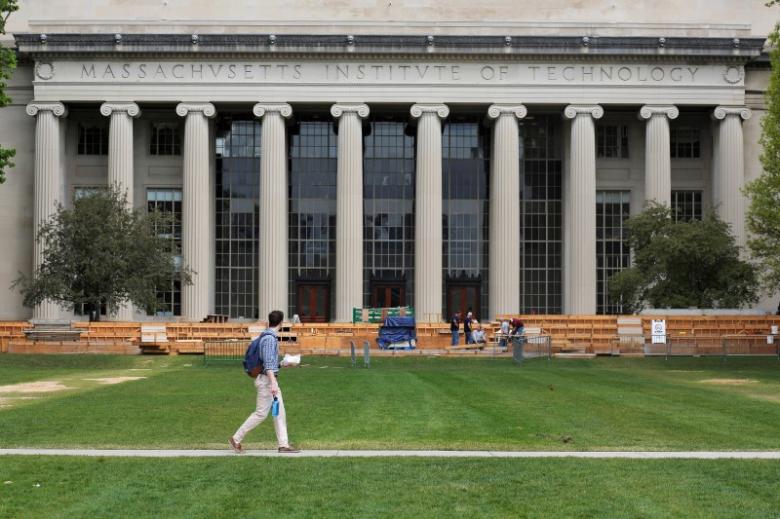
LUMS and Harvard Business Publishing enter into partnership
Over the next three years I spent countless hours trying to convince the powers-that-be in Pakistan about the importance of such a university. Surprisingly, for a country that did not have a single university ranked in the global top 700 universities, everyone seemed disconcertingly smug about the state of higher education in Pakistan. I wrote numerous proposals and made countless pitches to decision makers, politicians, bureaucrats and university administrators, all without success. My enthusiasm was returned with snide remarks from “Pakistan doesn’t need more PhDs”, to “MIT hamari jooti, Pakistan is great”, to “what do you know about Pakistan’s academic system?” I still returned to Pakistan, and took up a faculty position at the Lahore University of Management Sciences (LUMS), my undergrad alma mater.
Fast forward to 2011; I was named one of the top 35 young innovators in the world by MIT Technology Review (TR35). Since this was the first time a Pakistani had been named on this list, local media picked up the news and the Chief Minister ofPunjab Muhammad Shahbaz Sharif called me for a breakfast meeting. He asked me to work for Punjab Government and offered me to head the Punjab Information Technology Board(PITB). Serendipitously, he also told me that he wanted to establish a world-class IT university in Punjab. With Shahbaz Sharif’s unbounded zeal driving the project, Information Technology University (ITU) came into being in 2013. I became its founding Vice Chancellor, the youngest Vice Chancellor of any university in Pakistan at that time.
Academic collaboration: ITU partners with Harvard researcher on partition studies
This little “MIT for Pakistan” is driven by a culture of research and entrepreneurship. Its main purpose is to advance innovation and research in the areas of science, technology and engineering. We are highly selective in admitting faculty, research staff and students. This year, our student admission rate was only 2.28 per cent. The scholarship programs, both merit and need based, ensure that applicants are admitted solely on the basis of merit, irrespective of their ability to pay university fees. ITU’s main strength is the quality of its tenure-track faculty. Our tenure-track faculty hiring process is driving entirely by the candidate’s potential to conduct world-class research. Faculty members must have a PhD from a top-tier university and proven research credentials.
In the short duration of 3 years, our faculty members have won over Rs700 Million in competitive research grants, published scores of papers in top journals and conferences and made technology that solves local problems in Pakistan. For instance, Dr Mujeebur Rehman has invented a low-cost ventilator to replace the hand-pumped ventilators in hospitals, which could save thousands of lives every year; Dr Tauseef Tauqir has developed a new fan motor that would drastically reduce the energy consumption for fan manufacturers in Gujranwala; Dr Ali Agha has made a speech-based system that enables illiterate people to access Internet services and Dr. Yaqoob Banghash is digitising the historical archives of Punjab. Collaboration between PITB and ITU researchers has helped the Punjab Government in designing an early epidemic warning system for Dengue, reducing the dropout rates in child vaccination programmes in Punjab, Baluchistan and K-P, and devising a data collection platform that underpins mobile applications used by the government of Punjab.
Cambridge results: Record setting year for Pakistanis
With a specific focus on entrepreneurship; we have established a startup incubator, called Plan9 which is jointly run with the PITB. It has graduated over 130 startups and helped bootstrap a culture of tech startups in Pakistan. Plan9 now supports over 17 startup incubators throughout the country. Each faculty members gets one day off every week from university services to work towards the commercialisation of their research projects. In order to establish a credible scientific publication in Pakistan, ITU has licensed MIT’s Technology Review magazine, one of the most credible scientific publications in the world. MIT Technology Review Pakistan is printed every two months and covers technology research, startups and products in Pakistan.
We have just work on a purpose-built campus spread over 183 acres on Barki Road in Lahore. At the same time, we are entering into a partnership with EdX (MIT and Harvard University online course platform) to introduce online learning in our classrooms. I hope our little “MIT for Pakistan” will become a platform to advance scientific research, innovative and entrepreneurship in Pakistan.
The writer is the founding Vice Chancellor of Information Technology University (ITU) and tweets @umarsaif
Published in The Express Tribune, December 18th, 2016.
Like Opinion & Editorial on Facebook, follow @ETOpEd on Twitter to receive all updates on all our daily pieces.
































1714024018-0/ModiLara-(1)1714024018-0-270x192.webp)










COMMENTS (20)
Comments are moderated and generally will be posted if they are on-topic and not abusive.
For more information, please see our Comments FAQ